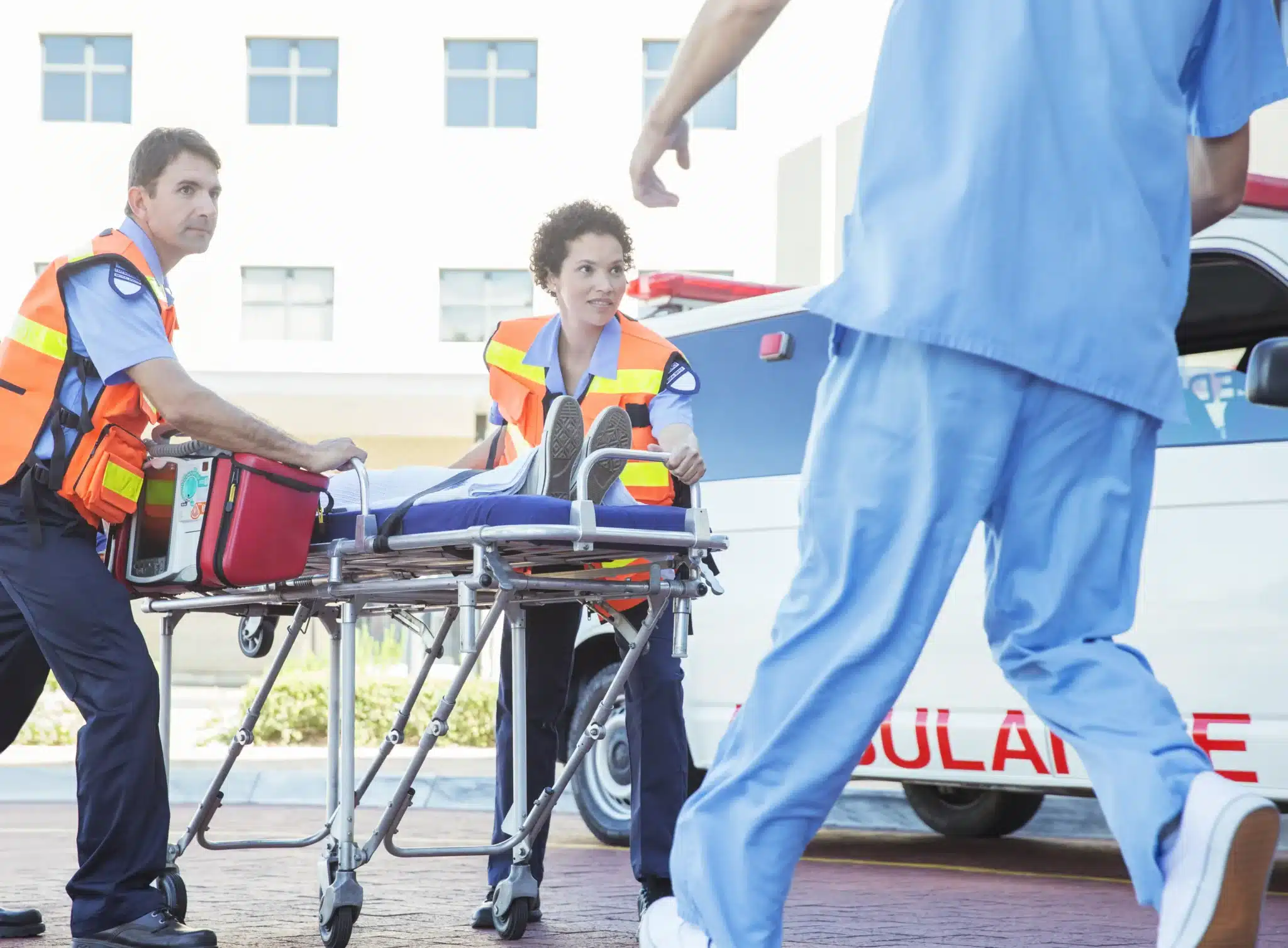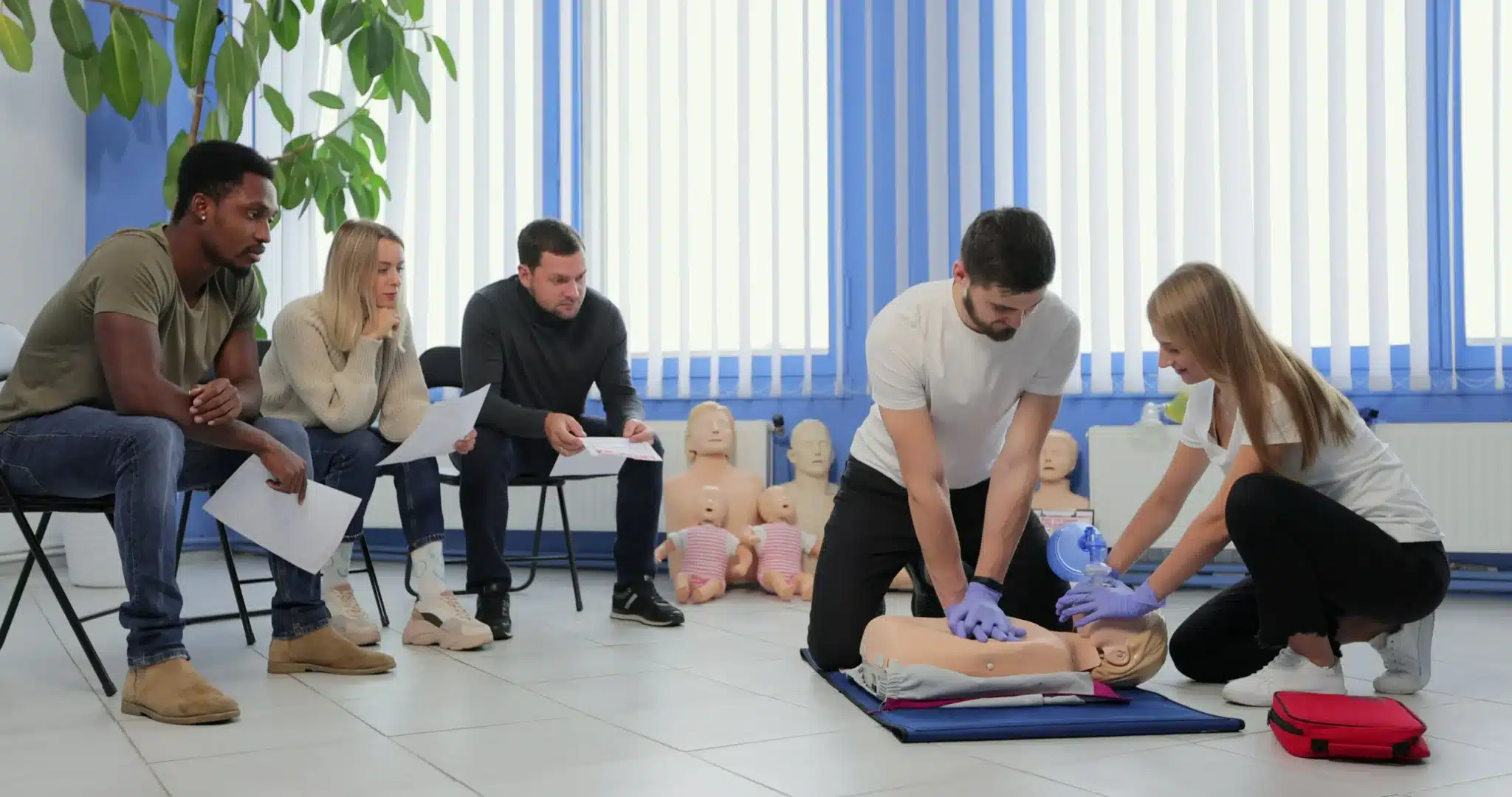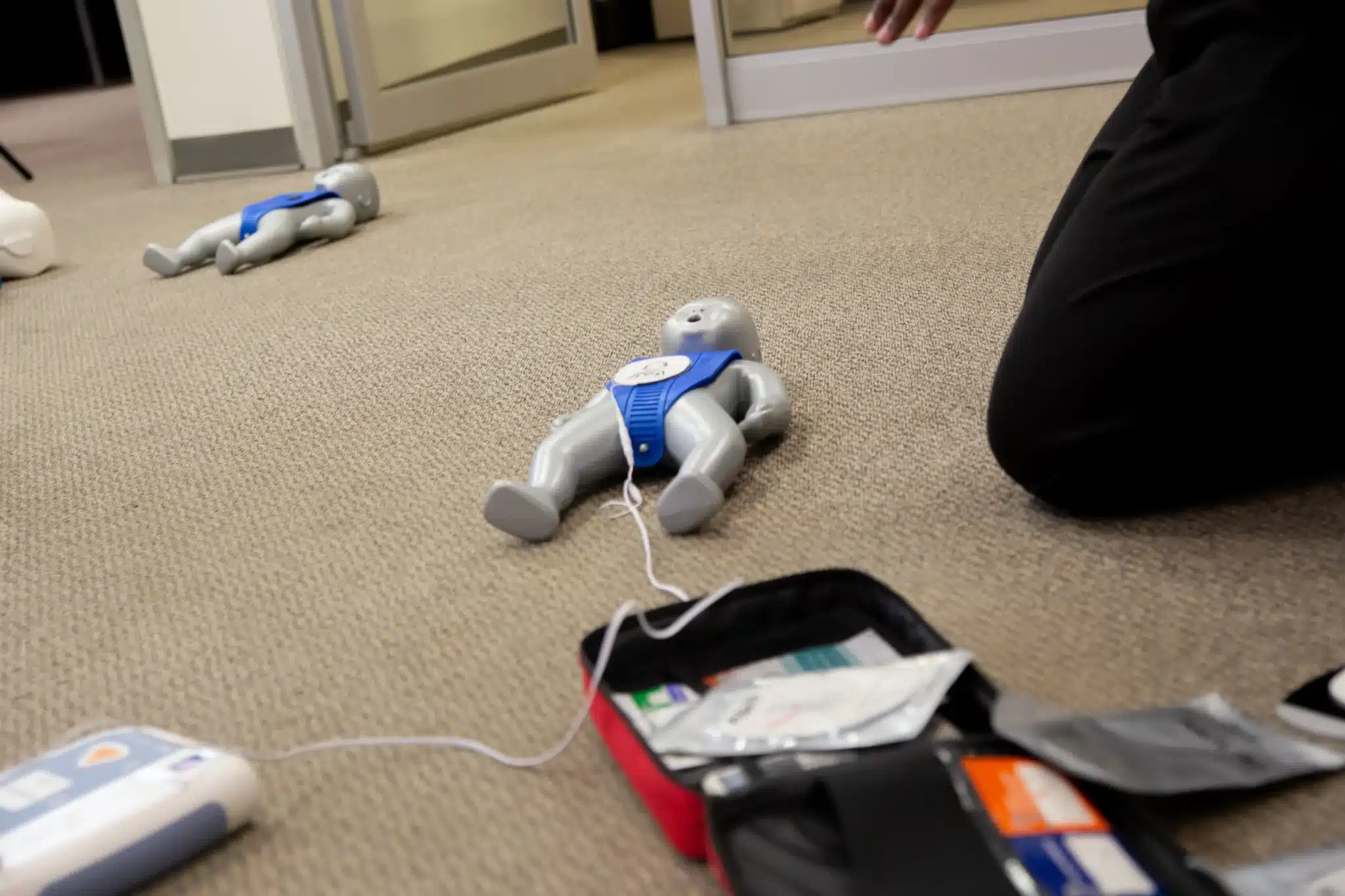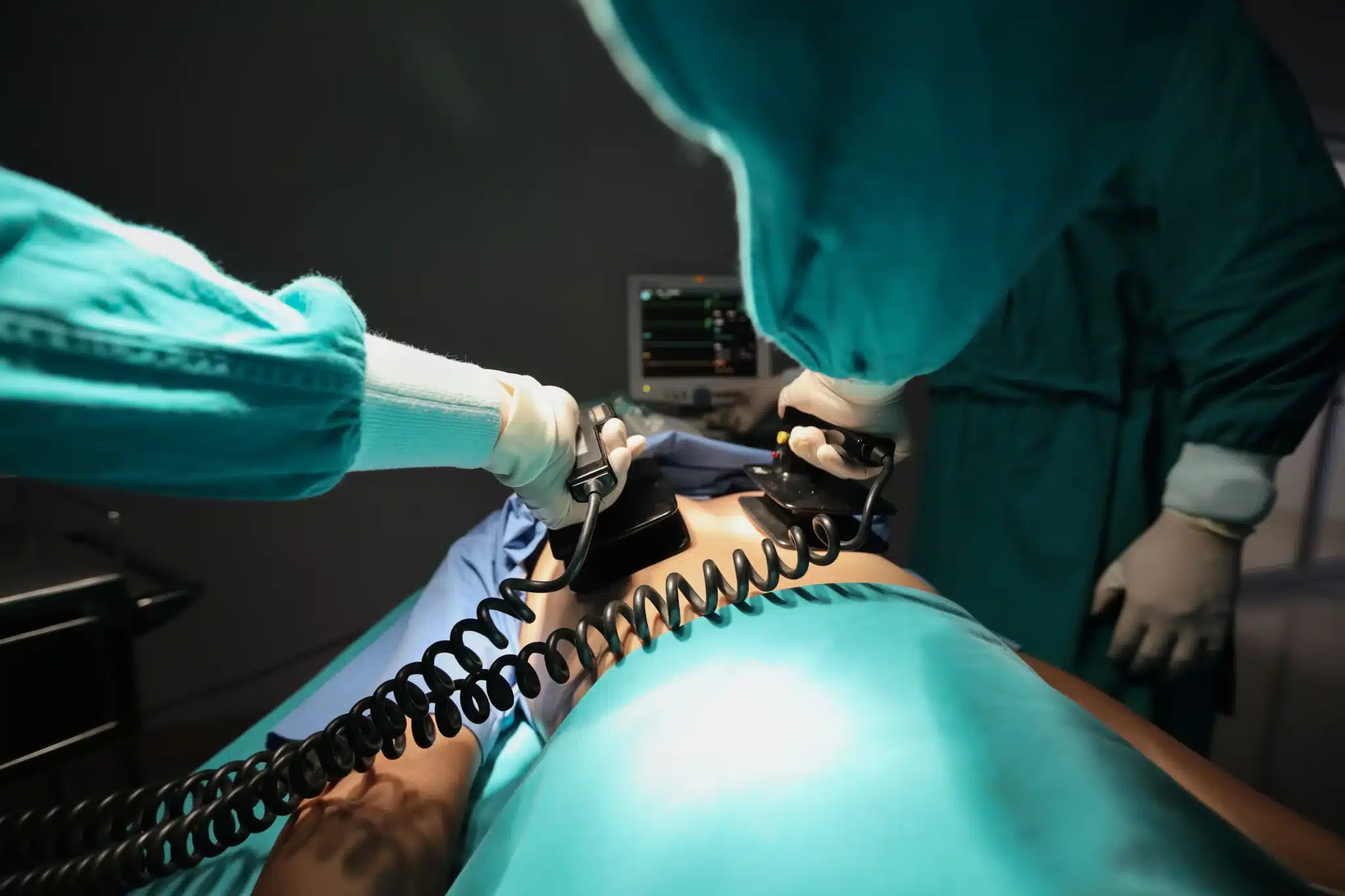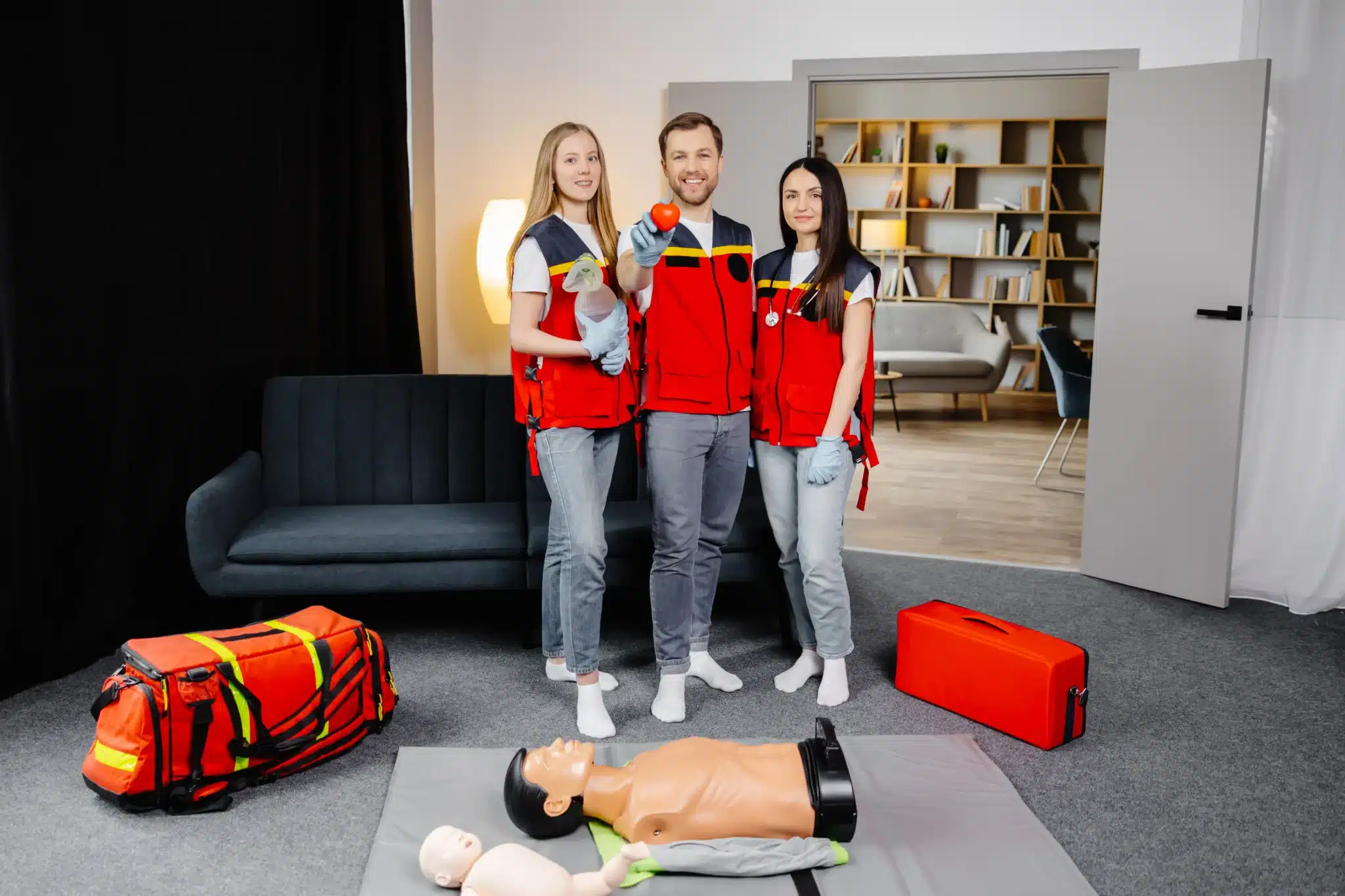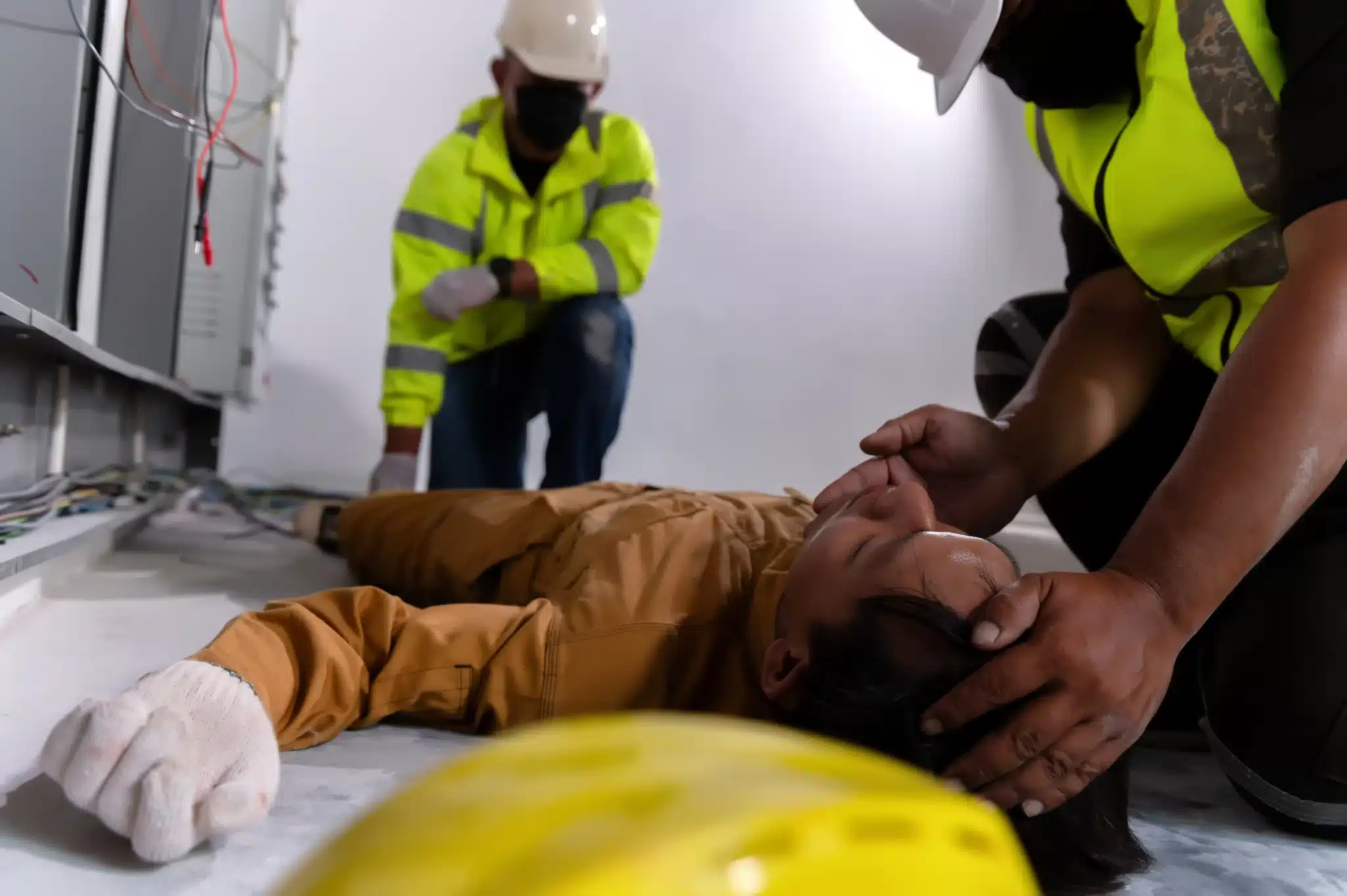Working in healthcare, especially with children, means being ready for anything. Pediatric Advanced Life Support (PALS) certification equips you with the skills to handle pediatric emergencies confidently. But finding the time for training can be tough. That’s where the flexibility of online PALS classes in Newark comes in. This article explores the benefits of online PALS certification, what to expect from these courses, and how to choose a program that fits your needs and busy schedule. We’ll also discuss key considerations like accreditation and what to look for in a reputable provider. Whether you’re a seasoned healthcare professional or just starting out, this guide will help you find the perfect online PALS course to advance your career and provide the best possible care for your young patients.
Key Takeaways
- PALS certification is essential for healthcare professionals treating infants and children: It equips you with the advanced skills needed to handle pediatric emergencies effectively. Choose a program that combines online learning with hands-on practice.
- Online PALS courses offer flexibility without compromising quality: Learn at your own pace and on your own schedule, while still receiving comprehensive instruction. Confirm the program’s accreditation and in-person skills assessment requirements.
- Maintaining your PALS certification requires ongoing effort: Stay current with the latest guidelines and pursue continuing education opportunities to ensure your skills remain sharp. Ask providers about their recertification process and continuing education resources.
What is PALS Certification & Why is it Important?
PALS certification equips healthcare providers with the knowledge and skills to respond to life-threatening emergencies in infants and children. It goes beyond basic life support (BLS) training, focusing on the specialized needs of pediatric patients. Think of PALS as advanced, targeted training for pediatric emergencies. This specialized focus is critical because children’s physiology and responses to emergencies differ significantly from adults. PALS certification ensures healthcare professionals are prepared to handle these unique situations effectively.
The importance of PALS certification in pediatric care cannot be overstated. It’s a vital tool for healthcare providers working in emergency rooms, intensive care units, and other settings where they might encounter pediatric emergencies. PALS training covers a wide range of topics, including recognizing and managing respiratory distress, cardiac arrest, and shock in infants and children. This specialized knowledge allows healthcare professionals to quickly assess a situation, make informed decisions, and provide appropriate interventions, ultimately increasing the chances of positive outcomes. For many healthcare professionals, PALS certification is a requirement, demonstrating their commitment to providing high-quality care. You can learn more about common misconceptions surrounding PALS here. If you’re a healthcare provider working with children, PALS certification is essential.
Top Online PALS Certification Providers in Newark
Finding the right PALS certification course can feel overwhelming, so we’ve compiled a list of reputable providers in Newark to help you get started. Each program offers unique features, so consider what best suits your learning style and schedule.
American Heart Association
The American Heart Association (AHA) sets the standard for PALS training. Their PALS course blends online learning with an in-person skills check and exam. This blended learning approach lets you study at your own pace before demonstrating your skills to a certified instructor. You’ll receive your AHA PALS card the same day you complete your skills check, a major benefit for busy professionals.
RWJBarnabas Health
RWJBarnabas Health offers an instructor-led PALS course in a classroom setting. They use videos and simulated pediatric emergencies to drive home key concepts like systematic assessment, basic life support, PALS treatment algorithms, effective resuscitation techniques, and team dynamics. This hands-on approach provides a comprehensive learning experience.
Bay Area CPR
Bay Area CPR offers AHA-certified PALS courses designed for healthcare providers. They understand the demands of healthcare schedules and aim to provide flexible training options. Visit their website to view upcoming course dates and times.
Fremont CPR Classes
Fremont CPR Classes provides PALS training along with other essential certifications like ACLS. They offer AHA-authorized courses with flexible scheduling, often including same-day certification. This convenience allows healthcare professionals to quickly update their credentials. Contact Fremont CPR Classes directly to discuss their PALS course offerings.
National CPR Association
The National CPR Association offers fully online PALS courses. This 100% online format offers maximum flexibility for busy Newark professionals who need to fit training into their schedules. While the coursework is online, remember that you’ll likely still need an in-person skills check for your certification.
Structure & Benefits of Online PALS Courses
Online PALS courses offer a convenient way to develop your life-saving skills. They blend online learning with hands-on practice, giving you the flexibility to learn at your own pace while still mastering essential techniques. Let’s explore how this blended learning approach works and its advantages.
Blended Learning Format
The PALS blended learning format combines online instruction with in-person skills practice. This approach caters to diverse learning styles and busy schedules. You’ll typically start with interactive online modules, then schedule a hands-on session with a certified instructor to demonstrate your skills. Programs like the AHA’s HeartCode PALS offer this flexible structure, allowing you to complete the coursework at your convenience. RWJBH offers a similar blended learning structure for their PALS certification.
Self-Paced Online Modules
One of the biggest perks of online PALS courses is the flexibility to learn at your own speed. The self-paced online modules let you move through the material at your own pace, revisiting sections as needed. These modules often incorporate engaging elements like real-world simulations and interactive exercises to reinforce learning and make the process more efficient. This personalized approach can be particularly helpful for those who prefer to digest information gradually or have other time commitments. Online PALS courses offer a variety of features to enhance the learning experience.
In-Person Skills Assessment
While the online modules provide foundational knowledge, the in-person skills assessment is critical for PALS certification. This session allows you to demonstrate your proficiency in essential techniques under the guidance of a certified instructor. It’s important to complete the online portion before the in-person skills check to ensure you’re prepared to practice and refine your skills. Information on the in-person requirements can be found on the RWJBH website.
Same-Day Certification Options
Many online PALS courses offer same-day certification after successfully completing the skills check. This means you receive your AHA PALS card immediately, ready to use your new skills. This expedited certification process is a significant advantage for those who need certification quickly for job requirements. ACLS123 is one provider that offers this convenient same-day certification.
Instructor Support and Resources
Even with online learning, instructor support is vital. Qualified instructors are available to answer questions, provide guidance, and offer feedback during your in-person skills session. This personalized attention ensures you receive the support you need to master the material and build confidence. Many programs offer additional resources, like study guides and practice materials, to further enhance your learning. RCPALS offers student testimonials highlighting the positive impact of instructor support.
Course Prerequisites & Requirements
Before you jump into a Pediatric Advanced Life Support (PALS) course, it’s important to understand the requirements. Being prepared ensures you’ll get the most out of the training.
Complete the Online Pre-Test
The American Heart Association (AHA) PALS course requires participants to complete an online pre-test. You can find this pre-test on the AHA’s eLearning platform. Make sure you bring proof of completion to your in-person skills session—a printed copy or a screenshot on your phone works perfectly. This pre-test confirms you have a basic understanding of core concepts before diving into hands-on training.
Understand Basic EKGs and Medications
Having a working knowledge of EKG interpretation and common pediatric medications is key for the PALS course. This background isn’t meant to make you an expert, but it will help you grasp the material and apply it effectively during real-world scenarios. If you’re renewing your PALS certification, remember to bring your current provider card to class.
Hold a Valid Healthcare Provider Certification
While PALS certification itself isn’t always mandatory for experienced healthcare providers, it’s highly recommended and often a prerequisite for the course. Many providers assume their on-the-job experience is sufficient, but PALS training offers specialized knowledge and skills specifically geared toward pediatric emergencies. Check with your employer or the course provider, like Fremont CPR Classes, to confirm certification requirements.
Secure Required Equipment for Skills Practice
You’ll need a few things for the skills practice portion of your PALS course. Most importantly, bring a printed copy of your online course completion certificate. This confirms you’ve finished the online portion and are ready for hands-on learning. Contact your chosen training center, such as Fremont CPR Classes, for a complete list of required materials.
Cost & Value of Online PALS in Newark
Getting PALS certified is an investment in your career and the safety of young patients. Understanding the costs and the value you receive is key to choosing the right course.
Average Price Range
The average cost for an online PALS certification course is around $230. This typically includes online access to the PALS textbook, so you won’t have to purchase it separately. This pricing structure is generally aimed at healthcare providers who respond to pediatric emergencies.
Available Discounts and Promotions
Look for discounts! Many online PALS providers offer promotions. You might find a promotional code like “SAVE10” that takes 10% off the cost of ACLS, PALS, or BLS courses.
Group Rates for Healthcare Organizations
If you’re with a healthcare organization or a group of colleagues wanting to get certified, ask about group discounts. Many providers, like Fremont CPR Classes, offer group rates that can significantly reduce the cost per person. This is a great way to train your team and manage your training budget. Contact Fremont CPR Classes to discuss group discounts.
Cost-Effectiveness vs. Traditional Courses
Online PALS certification offers a major advantage: cost-effectiveness. Compared to traditional classroom courses, online learning is usually more affordable. The online format offers flexibility and convenience, letting you learn at your own pace and on your own time. You also get high-quality learning materials, making online PALS a practical and efficient way to get certified.
What to Expect in Your Online PALS Course
Getting ready to take an online PALS course? Here’s a look at what you can expect, from the study materials to the skills checkoff. Understanding the process will help you prepare and make the most of your training.
Course Materials and Interactive Simulations
Online PALS courses typically use a blended learning approach. You’ll start with an online component that lets you work through the material at your own speed. This often includes access to the PALS Provider Manual as an eBook, giving you access to the core information anytime. Many courses also incorporate interactive simulations, presenting realistic pediatric emergencies and allowing you to apply your knowledge and make critical decisions in a safe learning environment.
Real-World Applications and Scenarios
Beyond the textbook material, online PALS courses often highlight real-world applications and scenarios. These examples bridge the gap between theory and practice, showing you how the skills you’re learning apply in actual emergencies. This practical approach helps solidify your understanding and builds your confidence for real-life situations.
Manage Your Time and Study Strategically
One of the biggest advantages of online PALS certification is the flexibility. The online modules are self-paced, meaning you can fit them around your existing commitments. Study when it works for you—whether that’s early mornings, late nights, or during your lunch break. This flexibility makes online learning a great option for busy professionals, parents, and anyone with a packed schedule. Create a study plan and stick to it as much as possible to ensure you complete the course efficiently.
Hands-On Skills Assessment Process
While the course content is online, demonstrating your skills requires an in-person assessment. This skills check involves performing key PALS interventions on a manikin, often with voice-assisted feedback. You’ll coordinate with an AHA Instructor or a certified training center to schedule this hands-on portion and receive your PALS Provider eCard. Your online course provider can help you find a convenient location and time.
Online vs. Traditional In-Person PALS Training
Deciding between online and in-person PALS training? Both formats offer the same certification, but the best choice depends on your learning style and schedule. Let’s break down the key differences to help you decide which PALS course is right for you.
Flexibility and Convenience
Online PALS courses offer unparalleled flexibility. Learn at your own pace, squeezing in modules whenever your schedule allows. This format eliminates travel time and rigid class schedules, making it ideal for busy professionals and parents. You can access course materials and resources online anytime, anywhere, providing a convenient learning experience. Many online courses also incorporate real-world applications to enhance learning. If you thrive in a self-directed environment, online learning might be a good fit. For a more structured, interactive experience, consider a traditional in-person class. Fremont CPR Classes offers both options to suit your needs.
Learning Effectiveness and Retention
Some believe online learning isn’t as effective as in-person training. However, online PALS courses are designed to be just as comprehensive, covering the same material as traditional classes. Interactive simulations, videos, and quizzes help reinforce concepts and improve knowledge retention. Ultimately, the effectiveness of either format depends on your individual learning style and commitment to the material. Choosing the right course format for your needs is key to success.
Time Commitment
While online PALS courses offer flexibility, they still require a significant time investment. Expect to spend around eight hours completing the online modules. Remember, online PALS courses typically include a required in-person skills check and exam. Some courses may offer same-day certification upon completion of both the online and in-person components. Factor this into your schedule when choosing a course.
Accreditation and Compliance Standards
It’s crucial to ensure your chosen PALS course meets the necessary accreditation and compliance standards. While some online PALS courses are accredited through reputable organizations, no fully online PALS course is currently accredited by the American Heart Association (AHA). The National CPR Association offers insights into online PALS certification. If AHA accreditation is important to you, consider a blended learning format that combines online modules with an in-person skills session and exam. Always verify that the course adheres to the latest resuscitation guidelines to ensure you receive up-to-date training. Contacting providers directly can clarify any questions about accreditation and compliance.
Student Experiences & Course Reviews
Choosing the right PALS course is a big decision, so hearing from other students can be invaluable. We’ve compiled feedback and reviews to give you a better sense of what to expect from online PALS training.
Feedback on Course Content and Delivery
Students consistently praise online PALS courses for their comprehensive and well-structured content. Many appreciate the clear explanations and practical applications, with comments like, “Great info, accurate data, and a very well-put-together training program!” and “This was a very thorough course with practical applications!” Some students even find online learning more effective than traditional in-person classes, noting that the focused format helps them absorb the material more efficiently. One student shared, “This is a very good course compared to in-person classes,” highlighting the potential of online learning to deliver a high-quality educational experience.
Instructor Expertise and Support
Instructor expertise is key to a positive learning experience. Students often mention the thoroughness of instructors in demonstrating proper techniques and providing helpful guidance. One student commented, “The instructor was very thorough in demonstrating the proper techniques of performing CPR and running a megacode,” emphasizing the value of expert instruction. Student testimonials offer further insights into the positive impact instructors can have.
Overall Learning Experience and Outcomes
The flexibility and accessibility of online PALS courses contribute significantly to a positive learning experience. Features like real-world applications and simulations enhance engagement and knowledge retention. The convenience of self-paced learning and access to high-quality content makes online certification an attractive option for busy healthcare professionals. Learn more about how online PALS courses benefit healthcare providers through increased accessibility and flexibility.
Maintain Your PALS Certification
Keeping your Pediatric Advanced Life Support (PALS) skills sharp is crucial for any healthcare provider. This section covers how to maintain your PALS certification, stay current with the latest guidelines, and find continuing education opportunities.
Renewal Process and Requirements
PALS certification is valid for two years. To renew your PALS certification, you’ll need to successfully complete a recertification course before it expires. This involves both a written exam and a practical skills test, demonstrating your proficiency in pediatric life-saving techniques. Plan to schedule your recertification course well in advance to avoid a lapse in your credentials.
Continuing Education Opportunities
Beyond recertification, ongoing learning is essential. Online PALS courses offer a convenient way to refresh your skills and knowledge. These courses often incorporate real-world applications and interactive elements, making learning more engaging. Many online PALS providers also offer continuing education credits, which can help you meet other professional development requirements. This flexible approach to continuing education makes it easier to fit professional development into a busy schedule.
Stay Updated with Latest Guidelines
Medical best practices are constantly evolving. Make sure your PALS knowledge aligns with the most current guidelines by choosing courses that adhere to the latest recommendations. Staying informed about updates in resuscitation techniques and pediatric emergency care is vital for providing effective care. Online PALS courses are a great resource for staying on top of these changes and maintaining your competency.
Choose the Right Online PALS Course
Finding the right online PALS course requires careful consideration. It’s important to understand the difference between online components and full online accreditation, which impacts how your certification is recognized.
Accreditation and Recognition
While online PALS courses offer flexibility, it’s crucial to understand accreditation. The American Heart Association (AHA) doesn’t accredit courses offered entirely online. However, other reputable organizations may offer accreditation for blended learning programs that combine online modules with in-person skills sessions. Always verify a program’s accreditation status with the National CPR Association to ensure it meets industry standards.
Key Selection Considerations
Online or blended PALS certification offers advantages like convenience and self-paced learning. Make sure the course aligns with the latest resuscitation guidelines. A high-quality course should provide current information and resources.
Questions to Ask Potential Providers
Before enrolling, ask providers specific questions. Steer clear of websites advertising fully online AHA-accredited PALS courses, as these don’t currently exist. Reliable customer support is essential. Inquire about their support system and responsiveness. A reputable provider will be transparent and available to answer your questions. Consider asking about the format of the skills assessment portion, as this will need to be completed in person.
Related Articles
- PALS HeartCode Fremont: Your Certification Guide – Fremont CPR Classes
- Best BLS ACLS PALS Training in Fremont – Fremont CPR Classes
- AHA PALS Classes in Fremont, CA – Fremont CPR Classes
- Online ACLS Classes in Newark: Your Complete Guide – Fremont CPR Classes
- Online ACLS Classes in San Jose: Your Guide – Fremont CPR Classes
Frequently Asked Questions
Is online PALS certification accepted everywhere?
While online PALS courses offer flexibility and convenience, it’s important to understand that the American Heart Association (AHA) doesn’t currently accredit fully online PALS courses. Blended learning formats, combining online modules with in-person skills sessions, are typically accepted and often preferred. It’s always best to check with your employer or regulatory body to confirm their specific requirements for PALS certification.
What if I don’t have a medical background? Can I still take a PALS course?
PALS courses are specifically designed for healthcare providers who may need to respond to pediatric emergencies. While a medical background isn’t strictly required for all courses, having a basic understanding of medical terminology and practices will significantly enhance your learning experience. If you’re unsure about your eligibility, it’s always a good idea to contact the course provider directly to discuss your background and goals.
How long does it take to complete an online PALS course?
The online portion of a PALS course typically takes around eight hours to complete. However, the beauty of online learning is the flexibility it offers. You can work through the modules at your own pace, fitting them around your schedule. Keep in mind that most online PALS courses also require an in-person skills check, which will add to the overall time commitment.
How much does PALS certification cost, and are there any discounts available?
The cost of PALS certification varies depending on the provider and the format of the course. Online courses generally range in price, but you can often find discounts and promotions. Many providers offer group discounts for healthcare organizations or teams, so be sure to inquire about those if you’re certifying with colleagues. It’s always a good idea to compare pricing and features from different providers before making a decision.
How can I ensure the online PALS course I choose is high-quality and up-to-date?
Look for courses that adhere to the latest AHA guidelines for pediatric resuscitation. A reputable provider will clearly state their adherence to these standards. Check for reviews and testimonials from other students to get a sense of their experience with the course content and instructors. Don’t hesitate to contact the provider directly with any questions you have about their curriculum, accreditation, or instructor qualifications.
